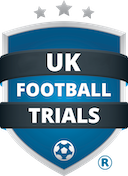
6 Things Scouts Look For At A Football Trial
The 6 Biggest Things Scouts Look For In A Player
It's important to understand first of all, that whenever you practise or play there may be a scout watching you in plain clothes or coaches with links into clubs watching you during your games. It is vitally important you follow these tips and apply them to give you the best chance of being scouted as you never know when you may be being watched. We suggest that you listen REALLY carefully to these things and start applying them today every time you practise and in every game you play. If you are wondering how we know this, we are not guessing what these things are, we have spoken to hundreds of scouts who attend our trials as well as our amazing Pro club coaches and here is an exclusive summary with real footage added in of what they said:
Tip 1 – A Good Attitude
This may sound obvious but every scout we speak to says a good attitude is important. If you come to a trial and behave in the wrong way you will not get put forward. Think about it – if a scout recommends a player who is arrogant, rude and doesn’t pay attention, it will reflect badly on them. It is essential therefore you have the right attitude. So what is the “right attitude”? Let me tell you, it is about being polite and respectful on your first impression – one scout told us that a player walked in and registered with headphones in chewing gum and it put him off immediately. It’s about playing with a smile on your face and being enthusiastic – scouts want players who will keep the mood in their team positive. It’s about listening and then trying to apply what you have been taught – even the best players look to improve throughout their career, if you walk into our trial and think you know more than the coaches it will not go down well. It’s about being determined to succeed and not letting your head drop or blaming others if things don’t go right – are you the player that keeps everyone going or the one who goes missing if things are going badly? It's about being prepared to work hard on and off the ball - we often see players at our trials who aren't prepared to sweat - they are more worried about looking good to other players than focusing on impressing the scouts with work rate. Finally it’s also about having the right attitude to your training in your own time – trust us, the scouts will be able to tell if you have not been eating right or doing enough fitness work. A good attitude alone will not be enough to get you scouted but if you don’t have one it can stop you getting a trial and if you have two players considered to be equal ability, the attitude is often the deciding factor!
Tip 2 – Ball Mastery and Technical Ability
What do we mean by ball mastery and technical ability – we simply mean having good touch and control as well as good technique and ability to carry out skills like passing, dribbling, shooting, tackling and heading. In this day and age, although the importance of each skill varies according to your position, if you don’t have a decent touch or technical ability, it is unlikely you will get scouted – even as a goalkeeper! Some players are blessed with more natural ability than others in this area but the good news is that like any skill you can make massive improvements with practise. The most common flaw we see in players is a poor weaker foot - if your weaker foot isn't up to close to your strong one, you are going to struggle so get practising against a wall!
Tip 3 – Speed and Agility
It’s a simple fact in the modern game, but if you are quick it really helps catch the eye of the scouts.
If you are slow, it can really hurt your chances of being scouted (realistically only commanding centre halfs who read the game incredibly well can get away with this). Once again not everyone is blessed with incredible natural pace but the good news is that again you can make yourself significantly quicker by training in the right way and learning correct sprinting technique. If you look at Youtube, there are lots of tips on how to become faster. and it can make a significant difference.
Tip 4 – Strength and Conditioning
It really annoys us when we hear stories of players being released because they are “too small for professional football”. Are Messi and Sterling huge men? No - they are small but are two of the greatest players in the world. People should never be told they are too small as these players clearly show what a ridiculous statement that is. However, players can be rejected because they are “too weak” – this can be labelled also at taller players. This is again a tragedy as every footballer with the right training and nutrition can become strong. Look at Ronaldo – he went from being weak and skinny to an incredibly strong and powerful athlete. You can start by doing core exercises like planks and sit ups and press ups and pull ups will boost your upper body strength while squats will build up your legs.
An unpopular one but it should go without saying that if you are remotely serious about football you need to be fit. There is simply no excuse not to be. We once had a player with amazing technical ability who was invited to a trial and had to be subbed off after 40 minutes of a game as he was exhausted. He wasn’t invited back to another trial and it was a tragedy as he was good enough - don't let this be you!
Tip 5 – Communication and Leadership
Let me give you a scenario – you are at one of our trials – one player out of 50 there to impress the scouts and Pro coaches. What is the easiest way of standing out – the answer is be loud and be a leader! This is linked to attitude but think about it, is a scout more likely to be drawn to a player talking, organising, encouraging and looking for the ball or a player shyly standing around waiting for the ball? One of our trials recently the loudest player at the trial was the youngest player there at 10 years old and unsurprisingly the scouts were so impressed he got scouted! What’s more, if there are lots of players being loud it creates a much better atmosphere and energy at the trials, the coaches love it and more of the players are likely to be picked up
Tip 6 - Movement and Vision
Another crucial thing scouts want is movement and vision.
Vision and movement is harder to practise but the key is to build your awareness. When you are practising or in a game it’s no good wondering around waiting for the ball to come near you. You need to have your head up and be scanning the field – where are your teammates and where are your opponents? You need to be looking to move and make runs into spaces where your opponents are not. This can be in behind the defenders or simply playing a pass and moving to an area in space so you can receive it back. When the ball gets to you should have an idea of where your other players are – Wayne Rooney says he has a mental picture of where his team mates are when the ball gets to him so he can play the ball instantly to a player in space or making a run. So next time you are in training or a game, play with your head up when you don’t have the ball, don’t allow your concentration to drift, practise making mental pictures of where the defenders and team mates are. To do this truly effectively, you have to have confidence that when the ball is played to you, your ball mastery will be good enough – if it isn’t you can have amazing vision but won’t have the skill to exploit the opportunities.
So there you have it, our top 6 tips on what scouts are looking for. Don’t forget that if you want to have your chance to get scouted or simply experience an amazing pro club academy style session and get individual feedback on 10 areas of your game, we would love to see you at our trials.




